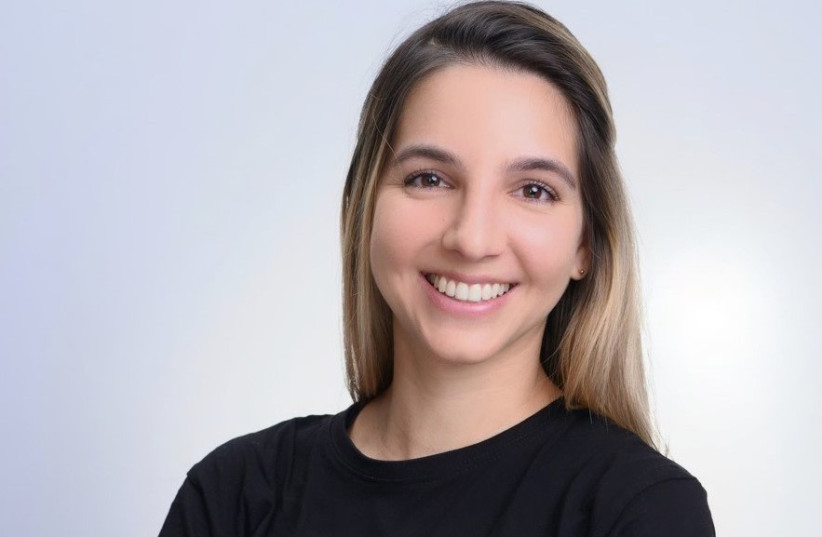Neta Rozy is the CTO and cofounder at insure-tech company Parametrix. Before cofounding the company at age 26, she earned a bachelor of science degree in computer science from Reichman University (formerly IDC Herzliya). She built the foundation of her career as a systems software engineer at DataStax.
What would you say is Parametrix’s approach to the insurance world? How has your history in tech influenced your approach to the insurance world?
The way that we approach anything is with a technology-first mindset. We don’t come from the insurance industry. Our backgrounds were always tech-related, especially me. That’s my area of expertise. Insurance just happened to be a rising star within the industry. There were a lot of problems to solve and we ended up pinpointing a few of them and seeing, which was most interesting for us to solve.
If you visit our office, we look like a start-up; we approach everything with a mindset of ‘technology start-up,’ we just happen to be in a very traditional industry that didn’t have much to do with technology until now.
What are the common problems in the insurance industry today? Why was there a need to bring your tech mindset to the industry?
It’s an industry that’s highly regulated, so things tend to move a bit slower than in other industries. What happened is that technology developed very quickly, and the insurance industry was a little slow to catch up. For business insurance in general, a lot of the tech-related insurance problems weren’t covered. That was something that we identified really early on, and saw a few holes in. I think today there are a lot of insure-techs that are doing a really good job of trying to fill that gap, but there’s definitely still a lot more to be done.

Like what?
The buy vs build mindset is probably the leading mindset in today’s world, and I agree with it as well. If someone has developed something, it’s usually more efficient to use what has been built before and to focus on innovating in areas where there isn’t an existing solution. The biggest downside, though, is that you’re then relying on someone else’s software, and that piece of software goes down, you generally go down with it.”
That was really a big problem that we saw. Our solution to that is a monitoring system that sits on top of these pieces of software, like Google Cloud, Fastly – the biggest names today in the cloud world – we monitor all of them, and we know how to give, down to the millisecond, how they’re performing and at what level.
One of the main problems was the claims process in general. The reason that the insurance industry gets such a bad reputation is due to the claims process, which is a pain in the ass for people to go through. It’s a lot of regulation and paperwork, things like that. We set out to try and improve it, to make it quick. And we came across the parametric model, which eliminates the claims process.... We’re able to create a black or white event that, without asking either side, we’re able to know exactly what conspired within that insured event, without the need for investigation or claims.
Has the COVID pandemic impacted Parametrix at all?
If businesses, especially more traditional ones, could get away with having on-premise systems, with COVID, everyone was sort of forced to move to the cloud faster than they planned originally. So cloud consumption and reliance on third-party software skyrocketed. That definitely increased the problem that we’re solving: once everyone was remote and at home, there was even more demand than there was previously.
How did that rapid shift to cloud consumption impact the market?
Cloud consumption is a trillions-of-dollars market, and it keeps exponentially growing, every year. People are moving to the cloud. The major cloud providers are building data centers globally, and everyone is moving their infrastructures to the cloud.
To wrap up, and without tokenizing your age, starting a company at 26 is nothing to sneeze at. How has your inherent freshness in the tech industry impacted your journey as a co-founder and CTO?
Me personally, I always knew this is what I wanted to do. My dream has always been to build something of my own. So I kind of knew that it was just a matter of time – and the right time was when I met my co-founders. Each of them have founded a different start-up, and that definitely helped a lot with overcoming some hurdles that require experience.
In my field, the tech field, the entirety of technology replaces itself every five years, so it doesn’t matter how many years you’re in the industry. If you are not up to date, you’re just going to fall behind. I think what really makes a good founder, executive or technology leader is their ability to adapt quickly, and I think that’s something that I have. It’s just a matter of staying humble, not thinking you know everything, and always learning. One thing that I think I’ve done well is that every single person I’ve hired has always been better than me at at least one thing, if not everything. Being able to identify and build a team of very strong technological qualified professionals - not feeling like the smartest person in the room - is something that I’ve been able to do.
